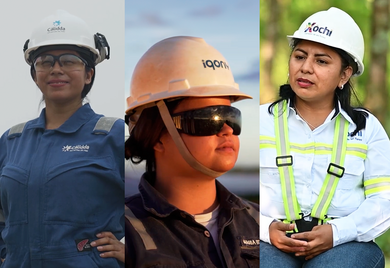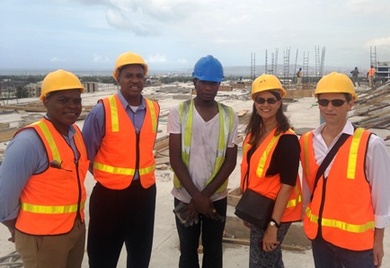Blogs Navigation
Sustainable BusinessRecent posts

Financial Health: Driving Growth in Latin America and the Caribbean
According to the latest Global Findex database, the proportion of adults in Latin America and the Caribbean (LAC) with account ownership rose from 39% in 2011 to over 75% in 2025. This increase was driven by the rise of digital-first financial service providers, expanded government transfers, and innovations that enhance the value proposition, such as the growth of e-commerce and instant payment systems in countries like Brazil, Peru, and Costa Rica.

IDB Invest and the New Push for the Private Sector in Paraguay
Imagine investing in a portfolio of projects in a country with sustained economic growth, low inflation, abundant clean energy, and preferential access to a regional market of 270 million consumers. That country is Paraguay, where IDB Invest has committed to mobilizing up to $1 billion to support strategic private-sector projects that drive sustainable development.

Energy and Transport Infrastructure: Projects Driving Jobs and Transforming Communities
IDB Invest works to boost job creation through the private sector and ensure these opportunities reach areas with the potential to develop new productive sectors and generate formal employment. Financing energy and transport infrastructure projects in Latin America and the Caribbean has been crucial for creating quality jobs and increasing women's workforce participation.

The one thousand and one questions on business ethics
What is an ethical business? Bernardo Toro, an advisor to the Avina Foundation, said it clearly and with humor during the opening ceremony of the Latin America Impact Investing Forum (FLII) which took place in Mérida, México at the end of February: “It is a business that doesn’t prey on people; one that creates real value; one that pays attention to what’s important, not what’s showy.” Simple and to the point.

Countdown to the Top Five Most Read Sustainable Business Posts of 2014
2014 was an eventful year for sustainable business across Latin America and the Caribbean. The IDB Group’s Sustainable Business blog tried to cover the private sector’s most relevant and impactful work in sustainability. We encourage you to re-read our top five posts and continue to follow the blog and Twitter. And stay updated by subscribing to our newsletter!

What do Peru and South Korea have in common?
* By Jorge Roldán, Chief of the IIC’s Technical Assistance and Strategic Partnerships Division, and Helga Flores, Principal IIC External Relations Advisor Since Peru and South Korea signed a free trade agreement in 2011, the Andean country has risen into fourth place among its competitors in the region that export to Korea. Today, the land of the Inca sells almost a third more to Korea than it did three years ago and is becoming increasingly important as the nerve center of exchange between Latin America and the Asian tiger.

ConnectAmericas Infrastructure Community
Boosting private, sustainable infrastructure investment in Latin America and the Caribbean * By Francisco Estrázulas Latin American and Caribbean governments are paving the way for increased private investment in infrastructure. The region is expected to invest at least US$1.5 trillion in infrastructure projects over the next decade, offering huge opportunities for investors and companies in the engineering and construction fields, as well as the myriad of other sectors involved in the infrastructure supply chains.

From Boys to Men: How inclusive business in the Caribbean drives social and financial returns
*By Stefan Wright and Cynthia Hobbs Sometimes one opportunity can change a person’s life. That seems to be the case for Mr. Keefa Harris of Kingston, Jamaica. Keefa received training in steel work under an IDB-funded Citizen Security & Justice Program. His interest and dedication set him apart as a star participant.

Corporate Governance: A match made in heaven or a relationship on the rocks?
As in romance, a company and its corporate governance structure can be a match made in heaven. Together they can ensure greater competitiveness, transparency and access to international financial markets. Consequently this attracts more investors to the country. And while the “perfect marriage” does not exist, when it comes to family business, corporate governance fosters harmony. If handled poorly, it can put the relationship on the rocks, making it problematic, uncomfortable, and at risk of corporate failure.


